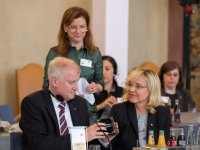Case Study
Environmental policy auditing for biodiversity conservation: The coordinated audit of protected…
Auditing entities are public institutions that play a key role in the improvement of environmental policies. Thus, the Commission on Environmental Auditing of Latin America (COMTEMA) conducted the Coordinated Audit of Protected Areas in 2019-2020, with the participation of 26 inspection entities from 17 countries, in order to effectively evaluate their environmental management.

